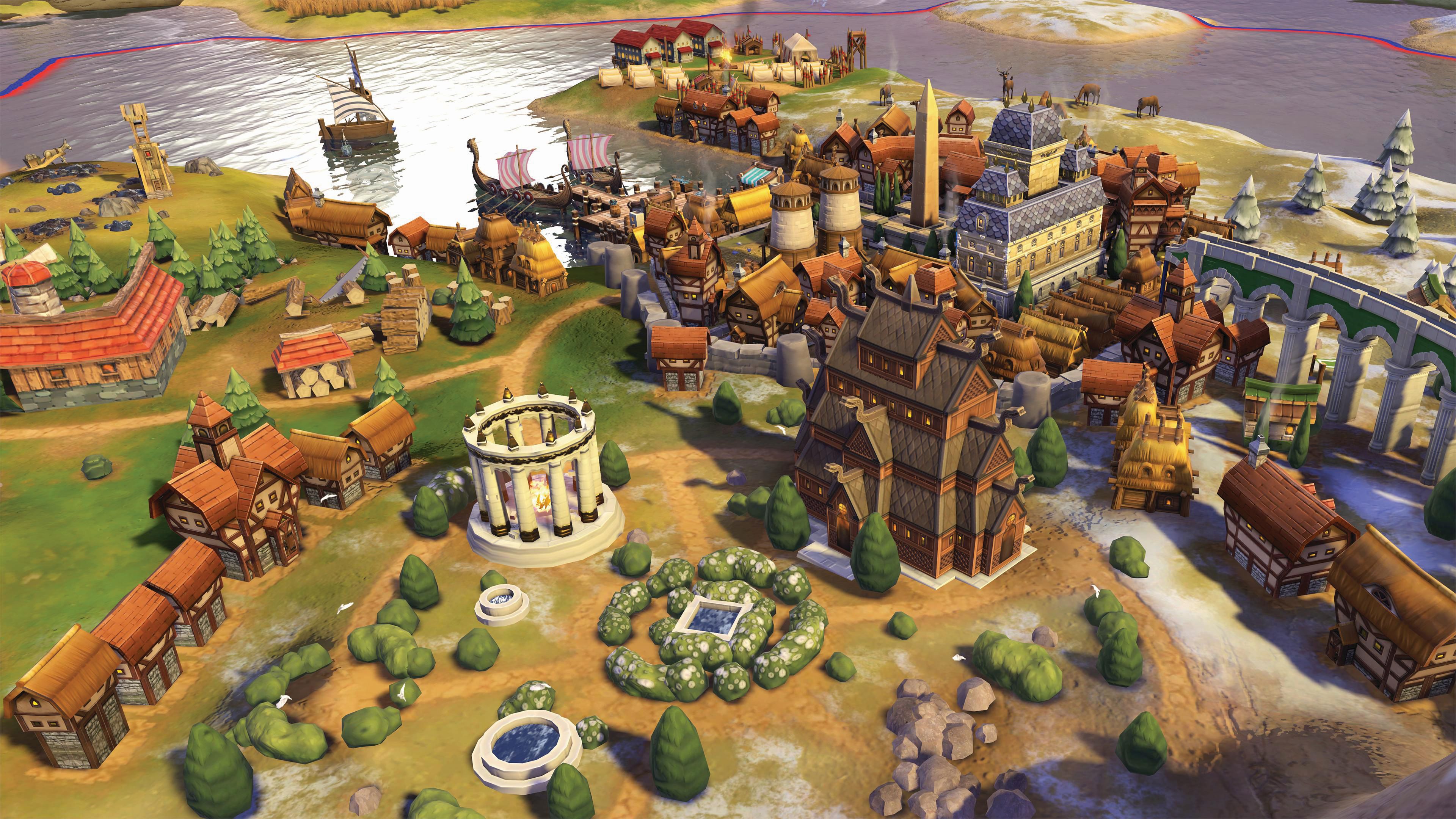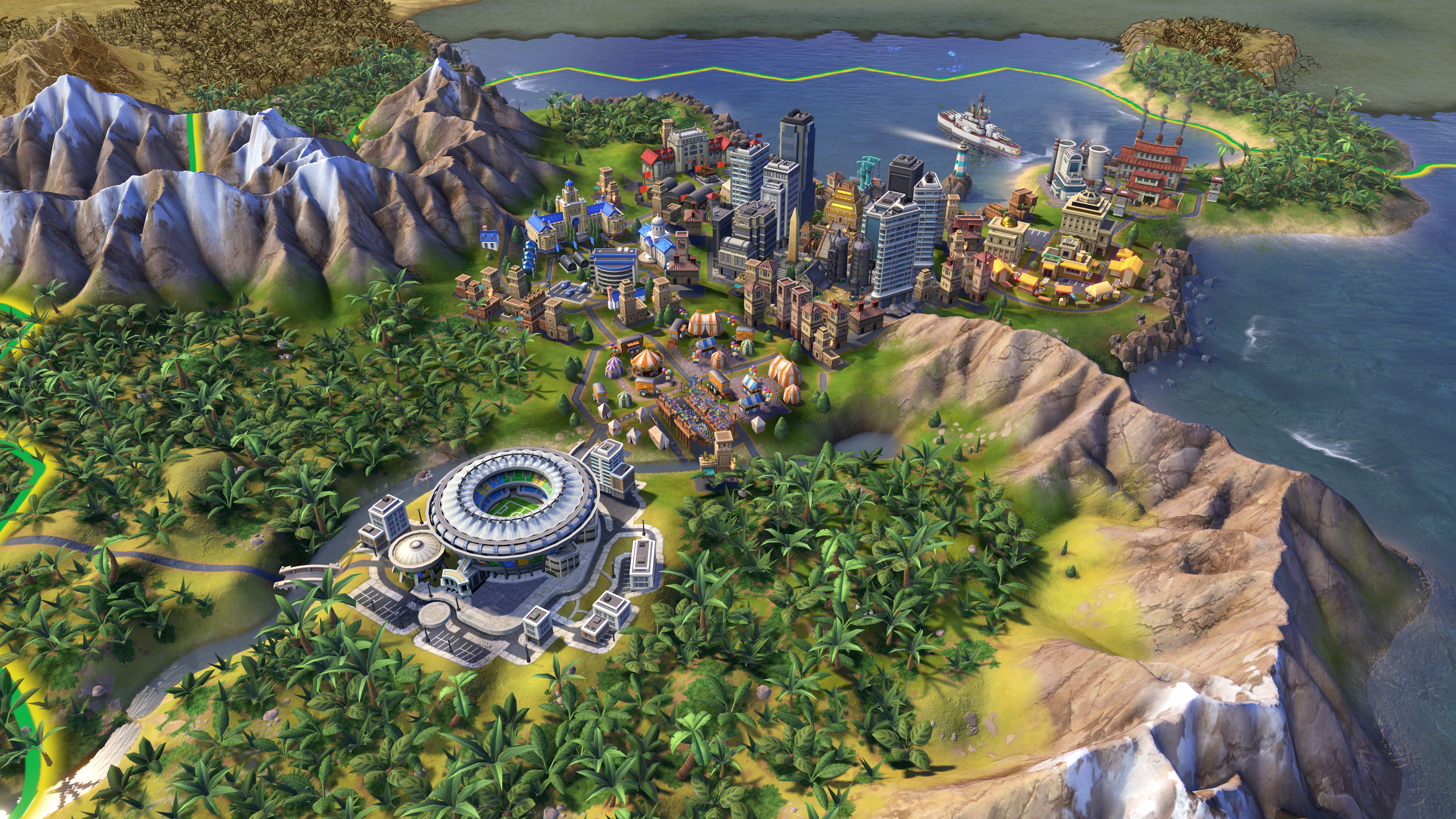The complete history of Civilization
26 years of conquest, building and Montezuma being a bit of a dick.
Civilization VI
Letting it all hang out.

As soon as work wrapped up on Civilization V’s final expansion, Brave New World, the design team had already moved onto Civilization VI. And with Ed Beach leading development on both, it’s not surprising that the pair share a lot of similarities, with the latter fleshing ideas introduced in the expansion and Civilization V’s other pieces of DLC.
Ever since it appeared in the third game, culture has evolved into one of the key pillars of the Civilization series, and for Beach it was a priority in Brave New World, which saw the introduction of the tourism system. It became a priority once again in Civilization VI, culminating in a new progression system that put culture on the same level as science, complete with its own tree, but for civics rather than technology.
“I’m a huge fan of world travel and spending time in other cultures,” Beach explains. “Every time I go to major European capitals, for example, all those opportunities to see the art that’s been collected, the museums, it’s a really interesting insight into what civilisations value and want to preserve. So I like to think about what that tells me about how civilisations should interact with each other, especially in the late game, when it’s not all about conquest.”
This culture focus, and particularly the civics tree, greatly expanded how much you could do in the game without cracking skulls and smashing down city walls, but it also continued the philosophy of optimism and positive forward momentum that Meier espoused all the way back in the very first game. And as Beach notes, along with several of his fellow lead designers, you can still trace a lot back to the original Civilization, decades later.


Ed Beach
Beach developed Brave New World and Gods and Kings before designing Civilization VI. He also makes board games.
Civilization VI was unusual in that, before development had even started, the team not only had a clear idea of several systems that they wanted to implement, they even knew that they worked. A great deal of the experimentation happened earlier in the process. You can see the origins of the district system, for instance, in 2010 with Civilization V’s Spain and Inca scenario pack, but placing buildings outside of cities was suggested as far back as the beginnings of the core game.
“The earliest notion of unstacking cities was before the Civ V base game even shipped. We were wondering how the wonders were going to be visualised, and there was a push internally from a team to move them outside cities, making them seem powerful and magnificent. There were a number of people that tried to get Jon Shafer to do it, but I think he made the right call then. We had a lot on our plate already for Civ V, with the tactical combat and moving to one unit per tile.”
The biggest gaming news, reviews and hardware deals
Keep up to date with the most important stories and the best deals, as picked by the PC Gamer team.
It was an idea that wormed its way into the minds of Beach and his team, however, inspiring the occasional special building like the Incan terrace farms and the Polynesian statues, which needed to be constructed on specific tiles, such as mountains and coastlines, respectively. When Beach started work on Civilization VI, it was the first thing that the team got working. He now considers it the game’s groundbreaking achievement, transforming cities into these sprawling metropolises that expand across the land through specialised districts.
“I’m a board game designer on the side,” Beach explains, “and there are a lot of board games that I like that are very focused on positional play and using or creating the map as you’re playing through it. That was the big stamp that we put on Civilisation VI, trying to make sure that you take advantage of the map, not just as this place you have to explore early in the game, but by putting your mark on the map, tile by tile. That’s why we unstacked the cities and included adjacency bonuses and districts.”

Unlike the other entries in this history of the series, Civilization VI isn’t finished yet. The game launched in 2016, and new civilisations and systemic changes are still being planned by Beach and his team. Religion, diplomacy and espionage will all be getting a new look before he’s done.
“There are six of us who are working actively in either game design or AI development, and I remind the team all the time that this is a marathon and not a sprint,” Beach says. “I’ve only run one marathon myself, so I only have a little bit of an idea of what miles 15 or 16 of a marathon are like, but that’s where I feel we are now. We’ve still got quite a way to go.”
But then Civilization is never really finished. Since the first game appeared way back in 1991, hardly any time has gone by where a new entry wasn’t being developed, or at the very least a prototype or piece of DLC. As familiar as it is, Civilization is always moving forward.

Fraser is the UK online editor and has actually met The Internet in person. With over a decade of experience, he's been around the block a few times, serving as a freelancer, news editor and prolific reviewer. Strategy games have been a 30-year-long obsession, from tiny RTSs to sprawling political sims, and he never turns down the chance to rave about Total War or Crusader Kings. He's also been known to set up shop in the latest MMO and likes to wind down with an endlessly deep, systemic RPG. These days, when he's not editing, he can usually be found writing features that are 1,000 words too long or talking about his dog.

